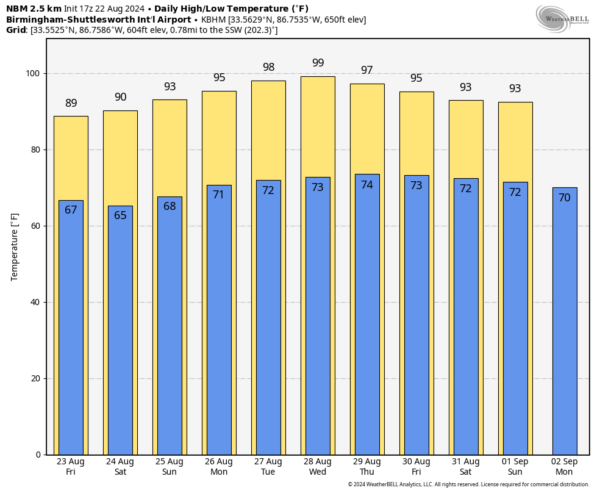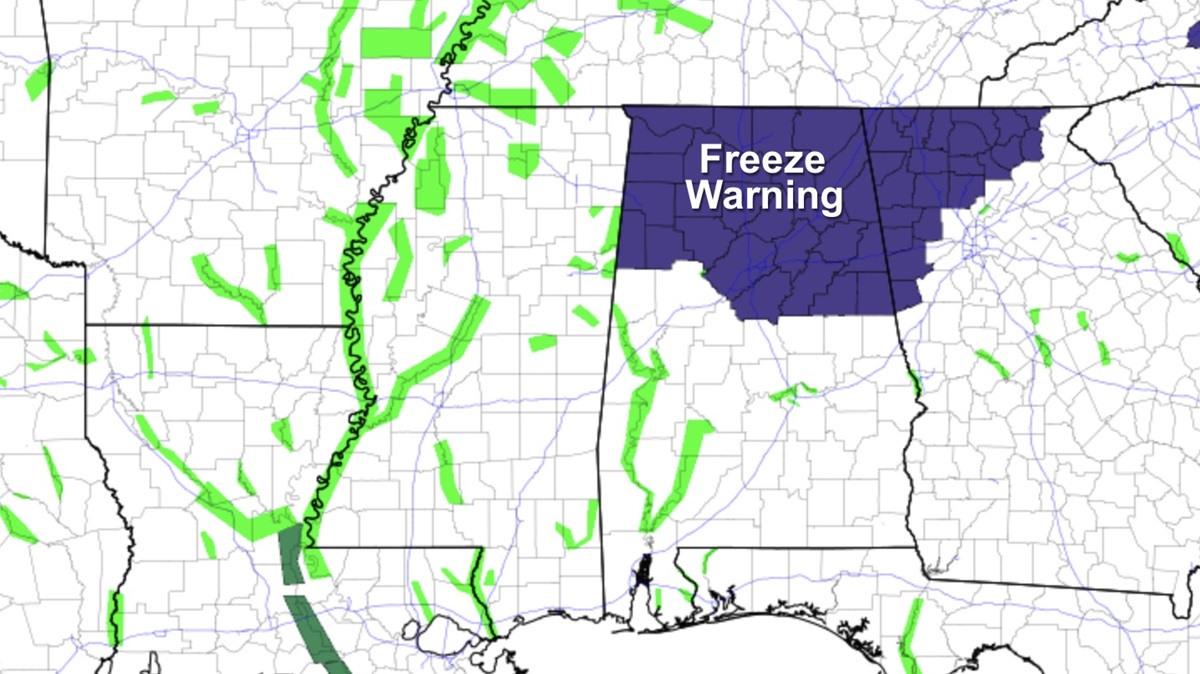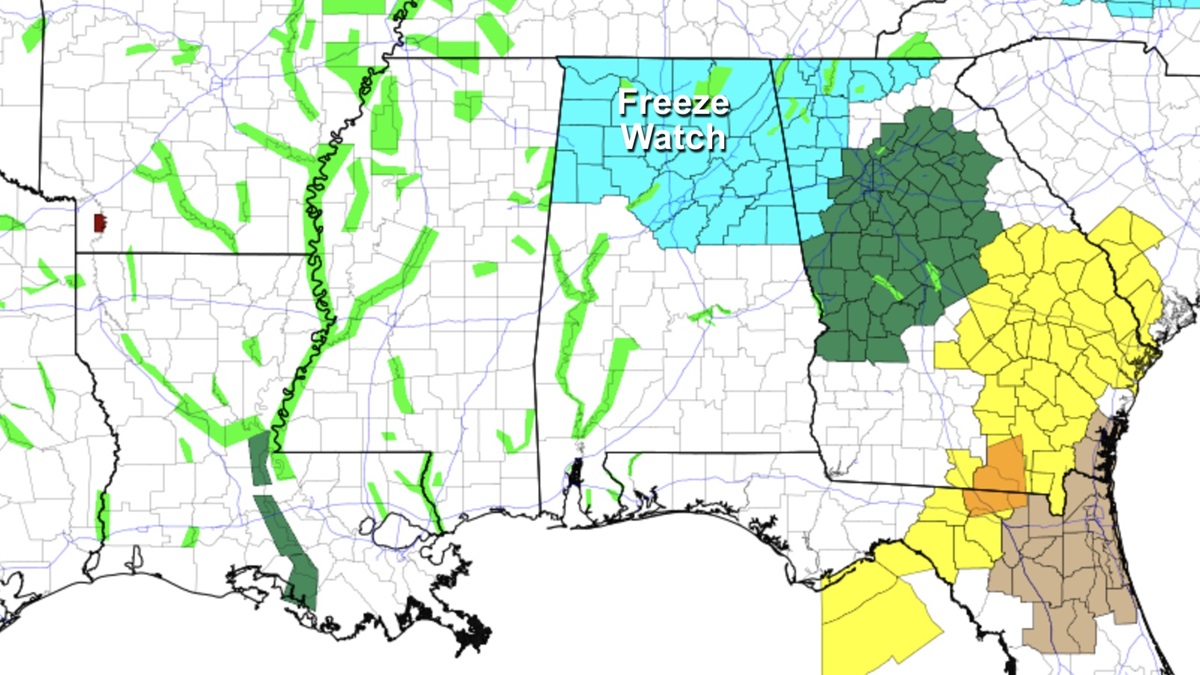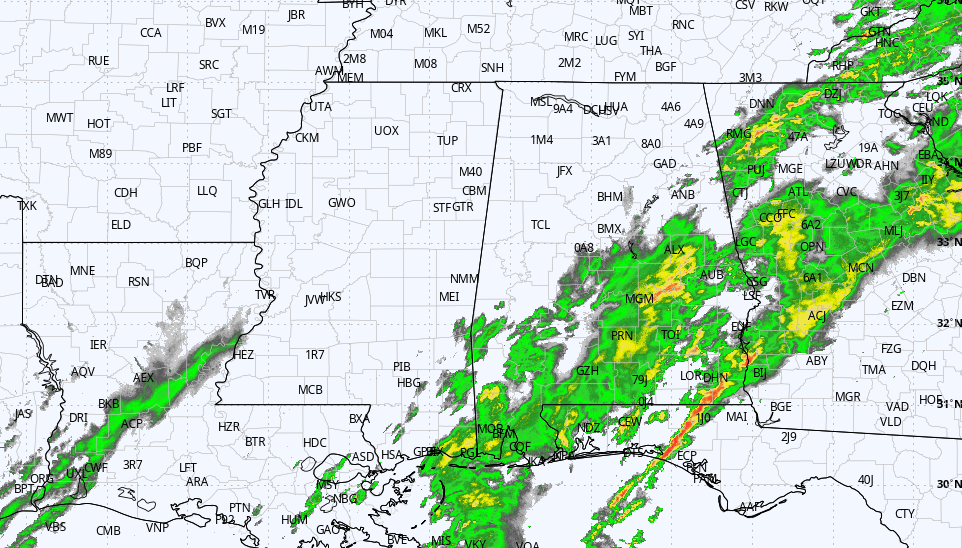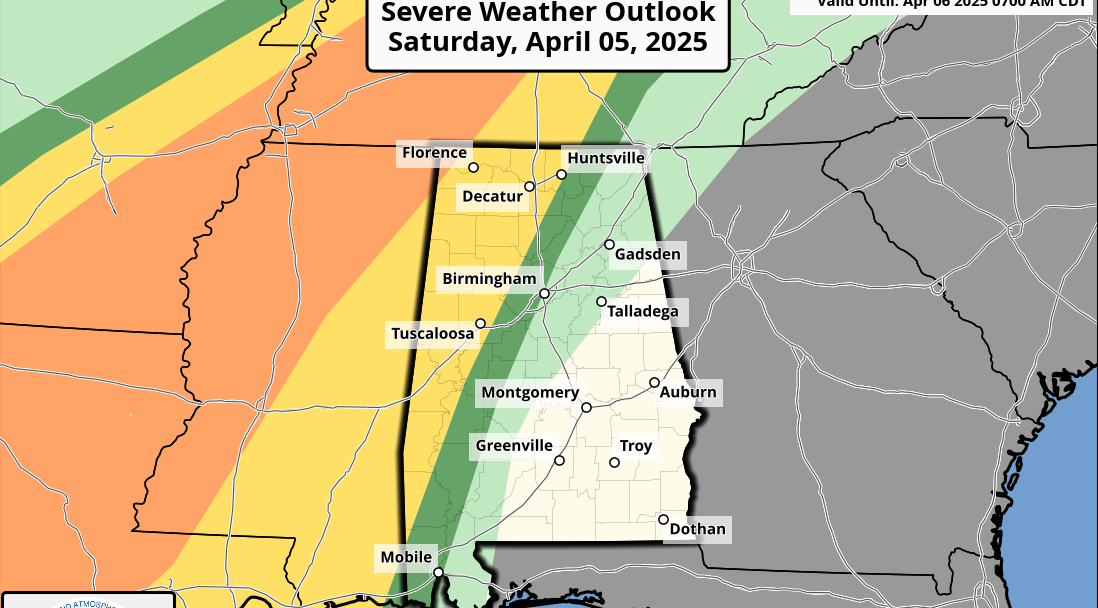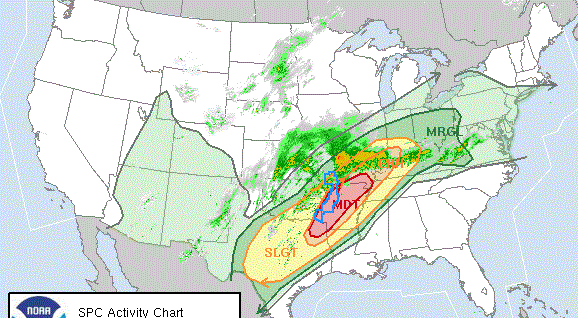James Spann: Dry pattern ahead for Alabama with rising heat levels
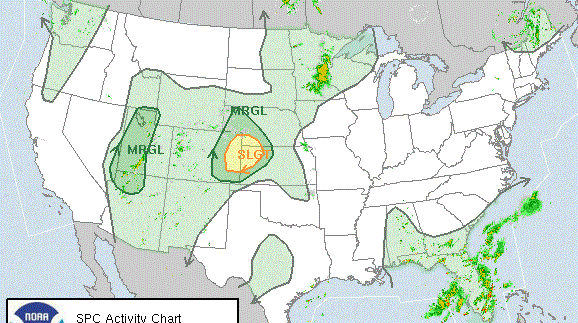
RADAR CHECK: We have isolated showers and thunderstorms across Alabama this afternoon. Most of the state is dry, but a few neighborhoods are seeing a decent shower. Showers will end after sunset; lows tonight will be between 64 and 70 degrees.
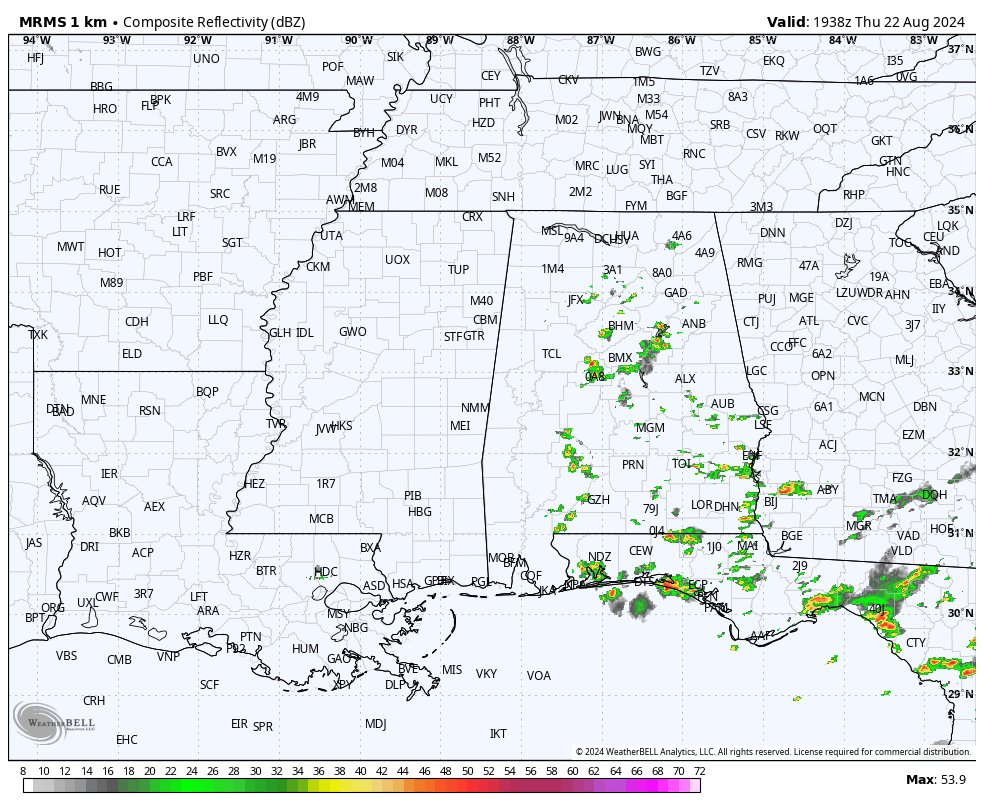
FRIDAY AND THE WEEKEND: The weather looks dry Friday through Sunday with slowly rising heat levels. The high will be between 89 and 93 degrees Friday, followed by low to mid 90s statewide over the weekend, with sunny days and fair nights.
NEXT WEEK: An upper ridge will strengthen across the Deep South, meaning hot, mostly dry weather through the week. Afternoon highs will be between 96 and 100 degrees Tuesday through Thursday, with lows in the 70s. A few isolated showers are possible late in the week, but there’s no sign of any meaningful rain.
FOOTBALL WEATHER: For the first high school games of the season Friday night, the sky will be mostly clear with temperatures falling from the low 80s at kickoff into the 70s by the second half.
TROPICS: There’s absolutely no sign of life across the Atlantic basin, which is pretty remarkable for mid to late August. No tropical storm formation is expected for at least the next seven days.
ON THIS DATE IN 1994: Hurricane John, about 345 miles south of Hilo, Hawaii, had winds of 175 mph and pressure at 920 millibars or 27.17 inches of mercury, making it one of the strongest hurricanes ever in the Central Pacific. The 31-day existence made John the longest-lasting tropical cyclone recorded in both the Pacific Ocean and worldwide, surpassing both Hurricane Tina’s previous record in the Pacific of 24 days in the 1992 season and the 1899 San Ciriaco hurricane’s previous world record of 28 days in the Atlantic. John was also the farthest-traveling tropical cyclone in both the Pacific Ocean and worldwide, with distance traveled of 7,165 miles, outdistancing previous record holders Hurricane Fico in the Pacific of 4,700 miles in the 1978 season and Hurricane Faith worldwide of 6,850 miles in the 1966 Atlantic season.
For more weather news and information from James Spann and his team, visit AlabamaWx.
